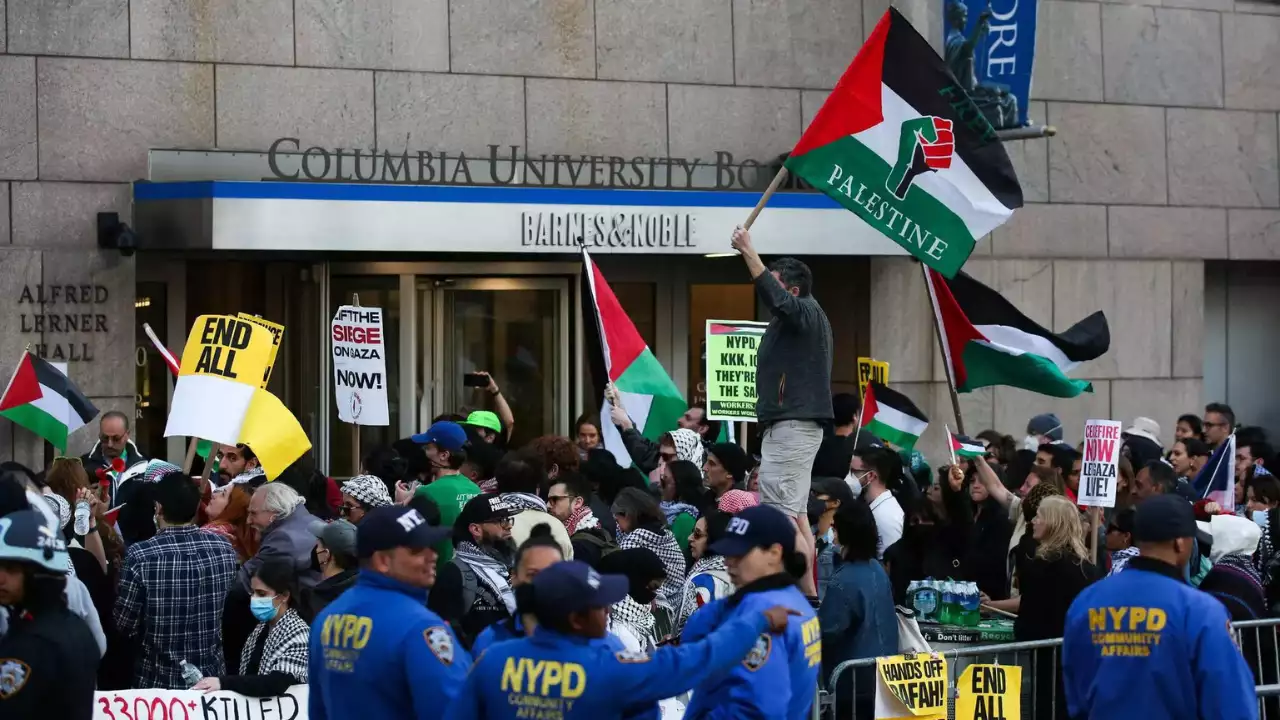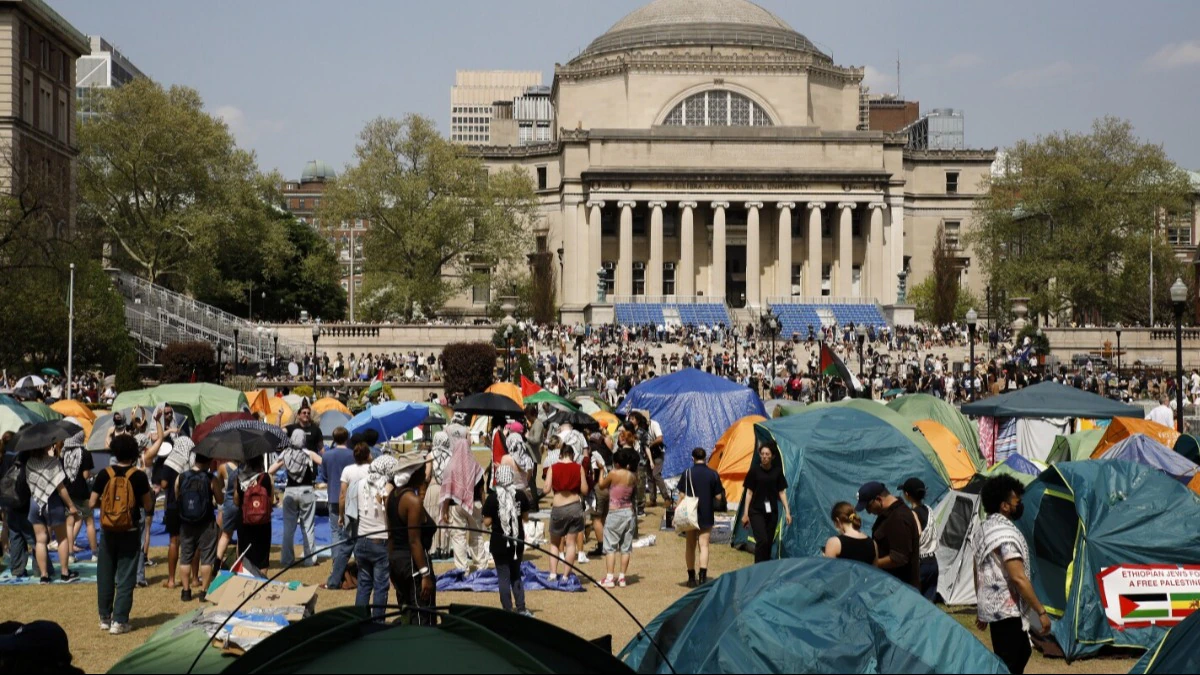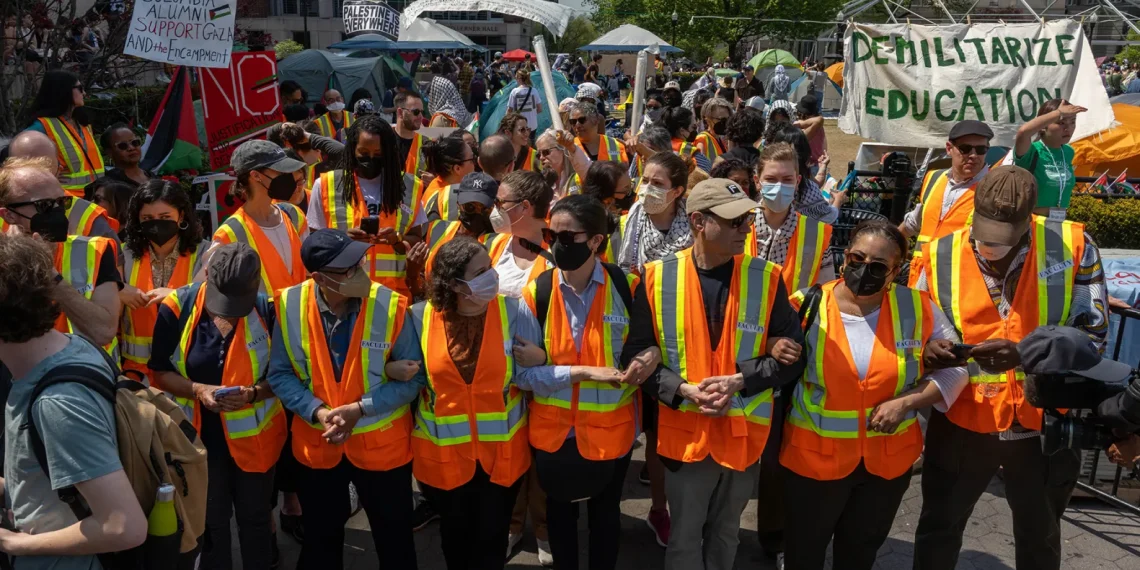Columbia University has taken action against pro-Palestinian activists who refused to dismantle a protest camp on campus following failed negotiations.
President Nemat Minouche Shafik confirmed that talks aimed at persuading demonstrators to remove tents expressing opposition to Israel’s actions in Gaza had reached an impasse.
The crackdown at Columbia coincides with similar protests erupting at universities nationwide, including arrests at the University of Texas at Austin.

Students were warned of potential suspensions if they didn’t vacate the encampment and sign agreements by the given deadline.
Ben Chang, a university spokesperson, highlighted the disruptive nature of the camp, citing its impact on Jewish students and faculty, as well as on academic activities.
The demands of the protesters include divestment from Israel, financial transparency, and amnesty for those disciplined for their involvement in the protests.
The demonstrators vowed to maintain their presence until these demands are met or until they are forcibly removed.
The protests have sparked debates on campuses regarding freedom of speech and accusations of antisemitism. UCLA, for instance, has increased security measures amidst escalating tensions between pro-Israeli and pro-Palestinian groups.

Criticism has also been directed at law enforcement tactics at protests, with incidents of arrests and clashes reported at various universities across the country. Virginia Tech witnessed arrests as tensions flared on its campus.
The nationwide demonstrations serve to draw attention to the Palestinian casualties amid the ongoing conflict in Gaza.
As debates on campus intensify, universities grapple with the challenge of balancing free speech with maintaining a safe and inclusive environment for all students and faculty members.


















